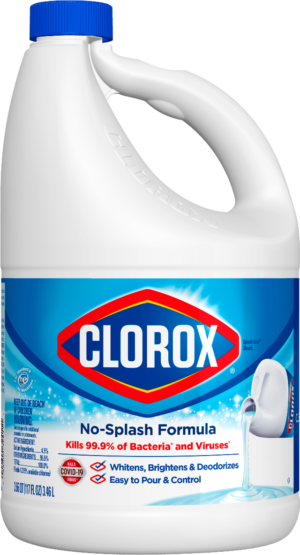Cold sores, also known as fever blisters, are a common and highly contagious viral infection caused by the herpes simplex virus (HSV). These painful blisters typically appear on or around the mouth, nose, and chin, and can cause itching, tingling, and burning sensations. Some people recommend using Clorox on a cold sore. While there is no cure for the herpes simplex virus, there are several over-the-counter and prescription medications that can help reduce the severity and duration of cold sores.
One such product that may be used to treat cold sores is Clorox, which is a well-known brand of household cleaning products. While Clorox is primarily used to clean and disinfect surfaces, some people claim that it can also be used to treat cold sores. However, it is important to note that Clorox has not been specifically formulated or tested for use on the skin, and its use as a cold sore treatment has not been supported by scientific evidence.
Using Clorox on cold sores could potentially cause more harm than good. Clorox is a powerful disinfectant that contains chlorine bleach, which can be harsh and irritating to the skin. Applying Clorox to a cold sore could lead to skin irritation, redness, and potentially even chemical burns. It is also important to note that the herpes simplex virus can be transmitted through contact with open sores, and using a harsh disinfectant like Clorox on a cold sore could break the skin and increase the risk of transmission.
If you are looking for a way to treat your cold sores, it is best to speak with a healthcare professional or use a product that has been specifically formulated and tested for use on the skin. There are several over-the-counter cold sore creams and ointments that can help reduce the severity and duration of cold sores. Some of these products contain antiviral medications that can help to reduce the viral load and speed up the healing process.
In addition to using topical treatments, there are also several steps that you can take to help prevent the spread of cold sores and reduce the risk of outbreaks. These include:
- Washing your hands frequently
- Avoiding sharing personal items, such as towels and utensils
- Not touching or picking at cold sores
- Keeping the affected area clean and dry
- Using lip balm or sunscreen on the lips to help prevent sun exposure, which can trigger outbreaks
It is also important to practice good hygiene and to follow a healthy lifestyle, which can help to boost your immune system and reduce the risk of cold sores and other infections. This includes eating a healthy diet, getting enough sleep, and staying hydrated.
In summary, while Clorox may be a powerful disinfectant, it is not a recommended treatment for cold sores. Using Clorox on cold sores could potentially cause irritation, redness, and even chemical burns. If you are looking for a way to treat your cold sores, it is best to speak with a healthcare professional or use a product that has been specifically formulated and tested for use on the skin. In addition to using topical treatments, there are several steps that you can take to help prevent the spread of cold sores and reduce the risk of outbreaks.
Clorox is a trademark of The Clorox Company
